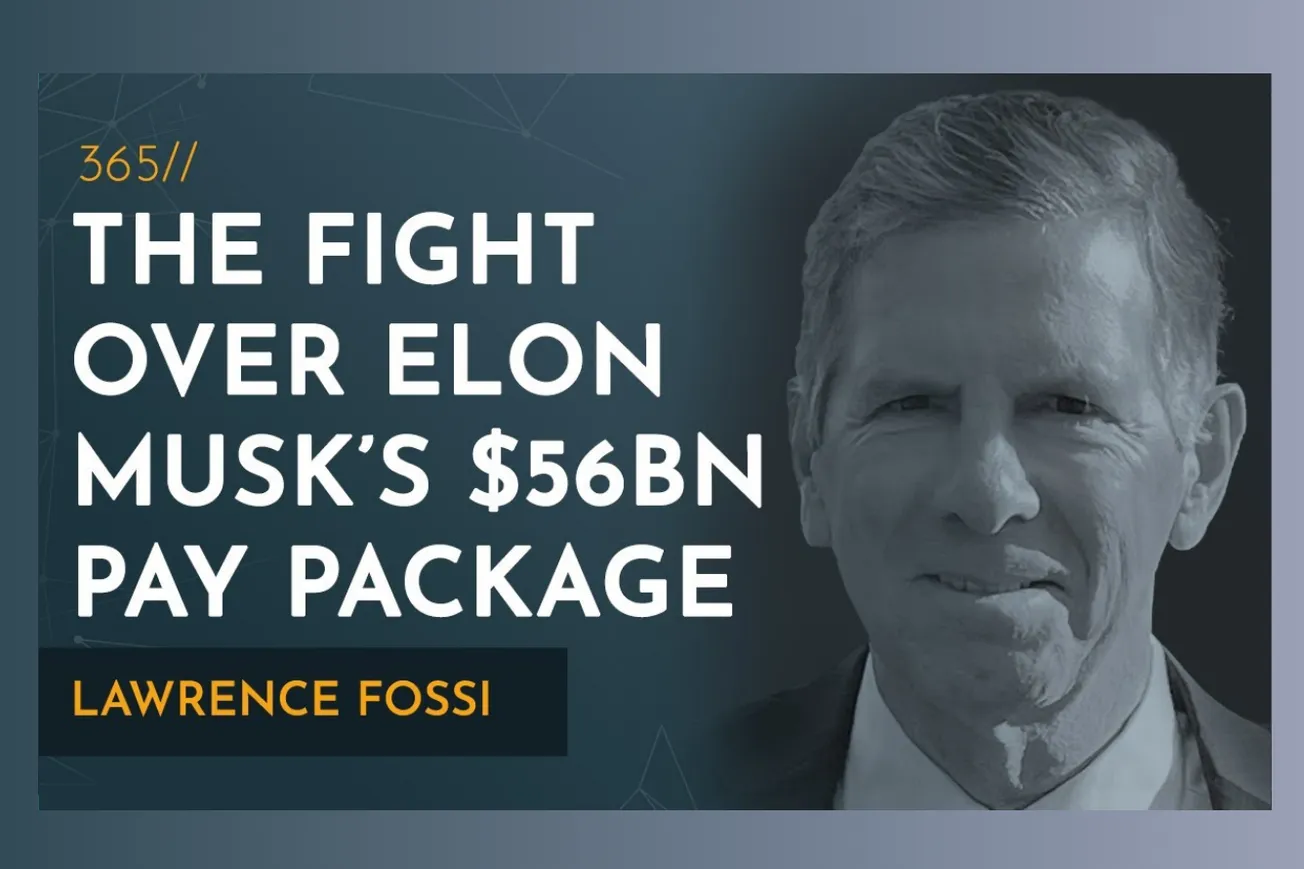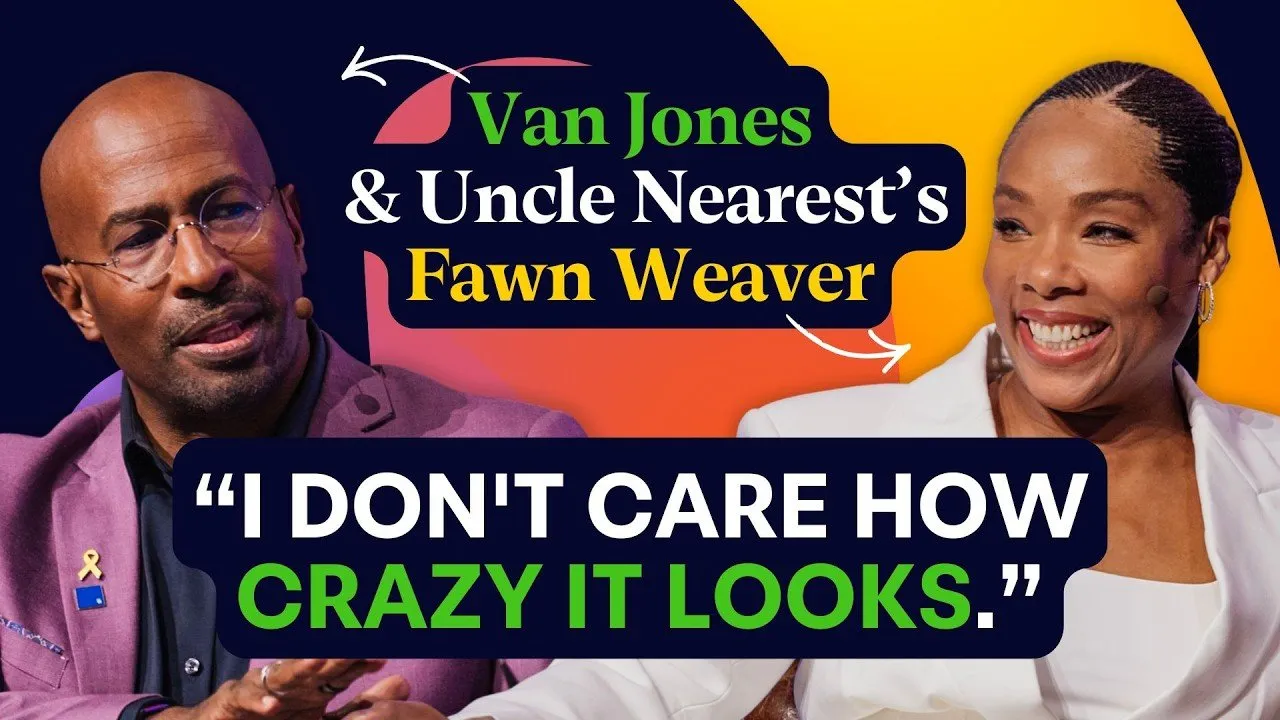Table of Contents
Delaware Chancellor Kathaleen McCormick rescinded Elon Musk's historic $56 billion Tesla compensation package, exposing widespread corporate governance failures and board capture.
A Delaware court's stunning rejection of the largest executive pay package in history reveals how Tesla's board became a $200 million rubber stamp for Musk's demands.
Key Takeaways
- Delaware Chancellor McCormick rescinded Musk's 304 million share compensation package worth approximately $47 billion today
- Tesla board members received hundreds of millions in stock options, creating financial dependency on CEO approval
- The compensation plan incentivized unsustainable market cap growth rather than long-term profitability or innovation
- Richard Tornetta's 2018 shareholder lawsuit exposed the complete absence of independent negotiation or benchmarking
- Tesla's attempted ratification vote and Texas reincorporation represent desperate measures to circumvent Delaware corporate law
- The case highlights broader corruption in American corporate governance affecting millions of passive index fund investors
- Musk's ownership of 21.9% already provided $10 billion motivation for every $50 billion market cap increase
- The ruling sets precedent for challenging excessive executive compensation when boards lack genuine independence
Timeline Overview
- 00:00–12:30 — Introduction and Tesla's Journey Since 2019: From near-bankruptcy to trillion-dollar valuation and subsequent decline
- 12:30–25:45 — Defending Musk vs. Legitimate Fraud Claims: Why critics argue Musk crosses the line from visionary promises to outright deception
- 25:45–42:20 — The 2018 Compensation Package Details: How Musk dictated his own $56 billion pay plan without board negotiation
- 42:20–58:15 — Board Capture Through Excessive Compensation: Directors receiving hundreds of millions create financial dependency on CEO
- 58:15–72:40 — Delaware Court Victory and Legal Analysis: Chancellor McCormick's "entire fairness" standard and 200-page ruling
- 72:40–85:30 — Tesla's Retaliation Strategy: Texas reincorporation and ratification vote as desperate measures to circumvent corporate law
The Anatomy of Corporate Capture
Tesla's board compensation structure represents a masterclass in how excessive equity grants can systematically corrupt corporate governance. The financial dependency created through stock options fundamentally altered the incentive structure that boards are supposed to operate under, transforming fiduciary duty into personal enrichment optimization.
The mechanism of capture operates through what behavioral economists recognize as the "endowment effect" magnified by extraordinary wealth creation. When Chairman Robyn Denholm accumulates $200 million in Tesla stock value, her primary economic interest shifts from protecting shareholders to preserving the source of her windfall. Chancellor McCormick's finding that this represented a "life-changing event" understates the psychological capture involved.
- Kathleen Wilson-Thompson's $170 million in Tesla equity created a compensation ratio roughly 5,000 times greater than traditional board service, fundamentally altering her risk-reward calculus
- The compensation committee's financial ties to Musk through previous ventures created multiple dependency relationships beyond just Tesla stock performance
- Steve Jurvetson's reported personal relationship including drug use demonstrates how professional boundaries dissolved under extreme financial incentives
- Traditional board compensation models of $24,000-60,000 annually maintained arm's-length relationships necessary for independent judgment
- The board's reflexive defense of demonstrably fraudulent statements reveals capture extending beyond financial interests to reputational protection
The systemic nature becomes clear when examining decision-making patterns. Board members consistently approved Musk's requests without documented questioning, negotiation, or independent analysis. This behavior is inconsistent with fiduciary duty but perfectly rational for individuals whose personal wealth depends entirely on maintaining Musk's favor.
Delaware corporate law assumes boards will exercise independent business judgment because directors traditionally had limited financial stakes in specific outcomes. Tesla's model breaks this assumption by making board service financially equivalent to C-suite executive positions, creating what governance experts term "alignment corruption" - where personal and shareholder interests diverge rather than align.
The $56 Billion Compensation Scheme
The structural design of Musk's compensation package reveals sophisticated manipulation of corporate governance principles to maximize extraction while minimizing accountability. The plan's focus on market capitalization targets rather than operational metrics created perverse incentives that prioritized stock price manipulation over sustainable business development.
The compensation architecture exploited a fundamental flaw in how equity markets value forward-looking promises versus current performance. By tying rewards to market cap milestones, the package incentivized Musk to make increasingly extravagant promises about future capabilities - from robotaxis to solar roof tiles - regardless of technical feasibility or resource allocation efficiency.
- The 12-tranche structure totaling 304 million shares created artificial urgency through milestone timing, pressuring short-term stock performance over long-term value creation
- Market cap targets beginning at $100 billion and extending to $650 billion assumed sustained exponential growth rates inconsistent with automotive industry fundamentals
- The absence of clawback provisions for subsequent declines revealed the package's one-way wealth transfer design rather than genuine performance alignment
- Revenue and EBITDA targets could be achieved through accounting manipulation, price cutting, or unsustainable growth strategies without improving underlying business health
- The $23.34 strike price, set during Tesla's financial distress, maximized potential gains while minimizing Musk's downside risk
The package's most insidious feature was its exploitation of Musk's existing 21.9% ownership stake. Basic finance theory suggests that equity ownership already provides optimal incentive alignment - any increase in company value directly benefits the owner proportionally. The compensation package essentially allowed Musk to double-dip, receiving additional equity for performance his existing stake already incentivized.
This structure violated fundamental principles of compensation design established in agency theory. Optimal contracts should minimize agency costs while providing sufficient incentives for effort. Tesla's package maximized agency costs through massive dilution while providing redundant incentives on top of already-substantial ownership stakes. The result was wealth transfer disguised as performance pay.
Chancellor McCormick's ruling highlighted that no benchmarking analysis compared this package to peer company compensation or established industry standards. The 200-fold excess over previous executive compensation packages suggested the board made no attempt to establish reasonable parameters or negotiate terms beneficial to shareholders.
Legal Challenges and Delaware Court Victory
The Delaware Court of Chancery's application of the "entire fairness" standard represents a fundamental shift in how corporate law evaluates executive compensation when traditional governance safeguards have been compromised. This legal framework acknowledges that normal business judgment deference becomes inappropriate when boards lack genuine independence.
Chancellor McCormick's analysis methodically dismantled the fiction of independent board oversight at Tesla. The court's finding that Musk constituted a "controlling shareholder" despite owning less than 50% reflects sophisticated understanding of how informal power structures can override formal ownership percentages. This determination triggered entire fairness review, which requires defendants to prove both fair process and fair price - a nearly impossible standard when compensation lacks benchmarking or negotiation.
- The controlling shareholder determination considered Musk's domination of board composition, strategic decision-making, and operational control beyond mere stock ownership
- Entire fairness review shifted the burden of proof to Tesla and Musk to justify the compensation package rather than requiring plaintiffs to prove wrongdoing
- The court's rejection of business judgment deference eliminated Tesla's primary legal defense strategy and forced substantive evaluation of compensation terms
- Delaware precedent establishes that controlling shareholders cannot use their influence to extract unfair benefits from minority shareholders through captured boards
- The 200-page opinion created detailed factual record demonstrating systematic governance failures that appellate courts will find difficult to overturn
- McCormick's analysis of board independence examined not just financial relationships but psychological dependency created by extreme wealth transfers
The legal significance extends beyond Tesla to establish precedent for challenging executive compensation when boards become financially dependent on CEO approval. Traditional corporate law assumed directors would maintain independence through modest compensation and reputational concerns. Tesla's case demonstrates how modern equity-based compensation can corrupt these assumptions.
The court's detailed examination of proxy statement disclosures revealed how Tesla misled shareholders about the compensation package's origins and approval process. Omitting Musk's role in designing his own compensation while portraying directors as independent constitutes securities fraud that undermines informed shareholder voting. This finding creates liability exposure beyond just rescinding the compensation package.
Delaware's institutional expertise in corporate governance matters proved decisive in analyzing complex relationships and incentive structures. The court's familiarity with compensation consulting practices, board dynamics, and fiduciary duty standards enabled sophisticated analysis that newer business courts lack. This institutional knowledge becomes crucial when evaluating modern governance manipulation techniques that exploit traditional legal frameworks.
Tesla's Desperate Retaliation Strategy
Tesla's response to the Delaware ruling reveals the sophisticated lengths to which captured boards will go to circumvent corporate law when their wealth depends on CEO approval. The dual strategy of Texas reincorporation and shareholder ratification represents forum shopping combined with legal gamesmanship that undermines the fundamental principles of corporate accountability.
The Texas reincorporation gambit exploits jurisdictional arbitrage while revealing the board's prioritization of Musk's interests over shareholder protection. Texas lacks the institutional infrastructure necessary for complex corporate governance litigation, making it an attractive venue for executives seeking to avoid rigorous judicial scrutiny. The timing and circumstances of this move demonstrate clear retaliatory intent rather than legitimate business purposes.
- The proposed Texas Business Court won't begin operations until September 2024, creating a legal vacuum where complex governance disputes cannot be properly adjudicated
- Political appointment of judges in Texas contrasts sharply with Delaware's merit-based, nonpartisan judicial selection process designed to ensure corporate law expertise
- Texas Business Organization Code largely mimics Delaware law without the centuries of precedent and judicial expertise necessary for sophisticated analysis
- The constitutional challenges facing appointed business judges in Texas create additional uncertainty about whether decisions will have legal force
- Ken Paxton's leadership of Texas legal institutions raises questions about political interference in corporate governance matters
- The reincorporation proposal appeared within hours of the Delaware ruling, suggesting pre-planned retaliation rather than careful strategic consideration
The ratification strategy represents an even more sophisticated attempt to circumvent corporate law through shareholder manipulation. Delaware Section 204 was designed to cure technical defects in corporate authorization, not to validate fundamental breaches of fiduciary duty. Tesla's attempt to use this mechanism reveals deep misunderstanding or intentional misapplication of corporate legal principles.
The ratification vote creates what legal scholars term "circular authorization" - asking shareholders to approve compensation that benefits the person controlling the voting process. Since Musk's influence extends to institutional shareholders through various business relationships and board members' financial dependency, the vote lacks the independence necessary for legitimate ratification. This manipulation of democratic corporate processes undermines the theoretical foundation of shareholder capitalism.
Professor Ann Lipton's "lighting assets on fire" analogy captures the fundamental waste involved in compensating executives for already-completed work. Corporate law prohibits waste because it represents pure wealth transfer without corresponding benefit to the corporation. Tesla's ratification attempt seeks to legitimize this waste through procedural manipulation rather than addressing the underlying governance failures that created the problem.
The Broader Corporate Governance Crisis
Tesla's compensation scandal represents a crystallization of broader corporate governance failures affecting American capitalism. The case demonstrates how captured boards enable executive enrichment at shareholder expense across public markets.
- Tesla's inclusion in the S&P 500 exposed millions of passive index fund investors to governance failures
- The compensation package has become a benchmark used by compensation consultants to justify inflated CEO pay industry-wide
- Tesla shareholders include countless 401(k) and IRA investors who suffered losses as the stock declined from inclusion price
- The company's R&D spending fell below industry standards as Musk optimized for short-term compensation milestones
- Promises of breakthrough technologies like full self-driving and solar roof tiles were abandoned after compensation goals were achieved
- The case illustrates how stock-based compensation can incentivize fraud and misrepresentation to pump share prices
Lawrence Fossi argues this corruption "is bad for capitalism" because it undermines the capital allocation efficiency that markets depend on. When boards become rubber stamps for management enrichment, the fundamental checks and balances of corporate governance collapse.
Implications for American Industry
The Tesla compensation case extends beyond a single company to represent systemic challenges facing American corporate governance. The precedent set by allowing such extreme compensation packages encourages similar behavior across industries.
- Musk's successful extraction of unprecedented compensation despite governance violations creates moral hazard for other executives
- The board's financial dependency model is being replicated at companies where directors receive excessive equity compensation
- Tesla's geopolitical complications through Chinese manufacturing raise national security concerns about captured leadership
- Musk's influence over critical infrastructure like Starlink demonstrates the dangers of concentrating power in compromised executives
- The company's declining innovation and product development reveal long-term costs of short-term compensation optimization
- Legal challenges to the ratification vote will determine whether shareholders retain meaningful protection against board capture
The resolution of Tesla's compensation battle will signal whether American corporate law can effectively constrain executive excess or if captured boards can simply circumvent judicial oversight through forum shopping and shareholder manipulation.
Common Questions
Q: How much is Musk's rescinded compensation package worth today?
A: Approximately $47 billion based on Tesla's current stock price and the package's $23.34 strike price.
Q: What makes Tesla's board compensation unusual compared to traditional corporate governance?
A: Board members received hundreds of millions in stock options versus traditional compensation of $2,000-5,000 monthly.
Q: Can Tesla's shareholders actually restore the compensation package through ratification?
A: Legal scholars argue ratification constitutes corporate waste since it pays for already-completed work providing no company benefit.
Q: Why did Tesla choose Texas for reincorporation instead of other business-friendly states?
A: Texas was selected despite having no developed corporate law, suggesting the move was retaliatory rather than strategic.
Q: How does this case affect ordinary investors who don't own Tesla directly?
A: Tesla's S&P 500 inclusion means millions of index fund investors are exposed to governance failures through 401(k) and IRA accounts.
Tesla's compensation scandal reveals how captured boards can systematically extract shareholder value through excessive executive pay. The Delaware court's intervention provides a rare victory for corporate governance principles over management enrichment.
Practical Implications
- Index fund investors should examine proxy voting policies of their fund managers regarding executive compensation
- Shareholders must scrutinize board independence and compensation structures before investing in growth companies
- Institutional investors need stronger oversight mechanisms to prevent board capture through excessive equity grants
- Corporate law may require updates to address modern forms of governance manipulation and forum shopping
- Regulatory agencies should investigate whether Tesla's compensation practices constitute securities fraud
- Board compensation should return to traditional cash-based models rather than equity grants exceeding CEO pay





